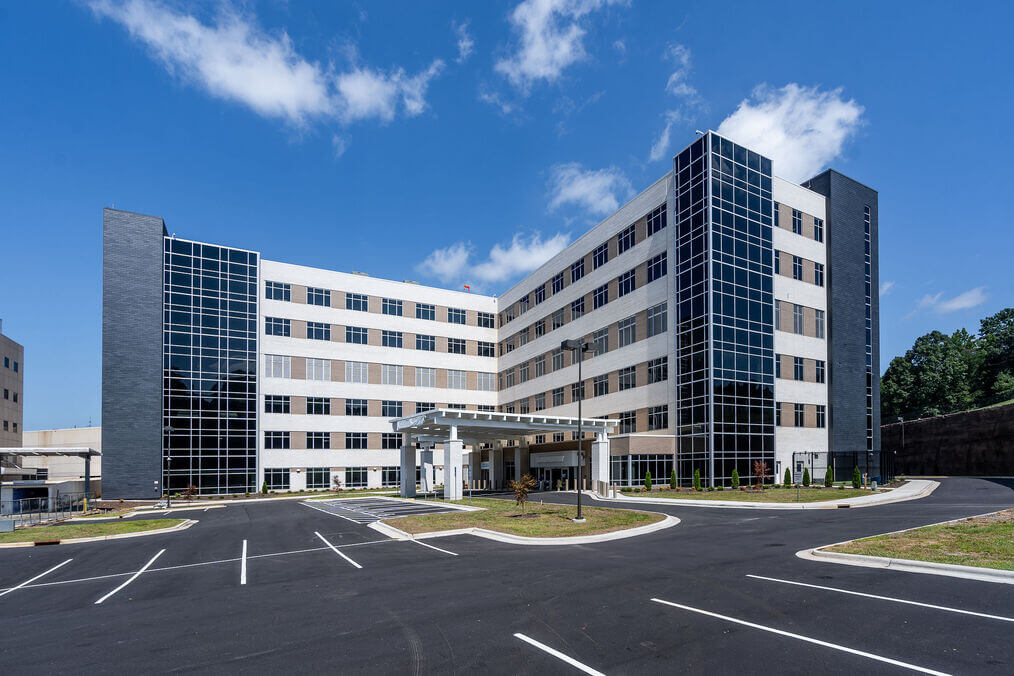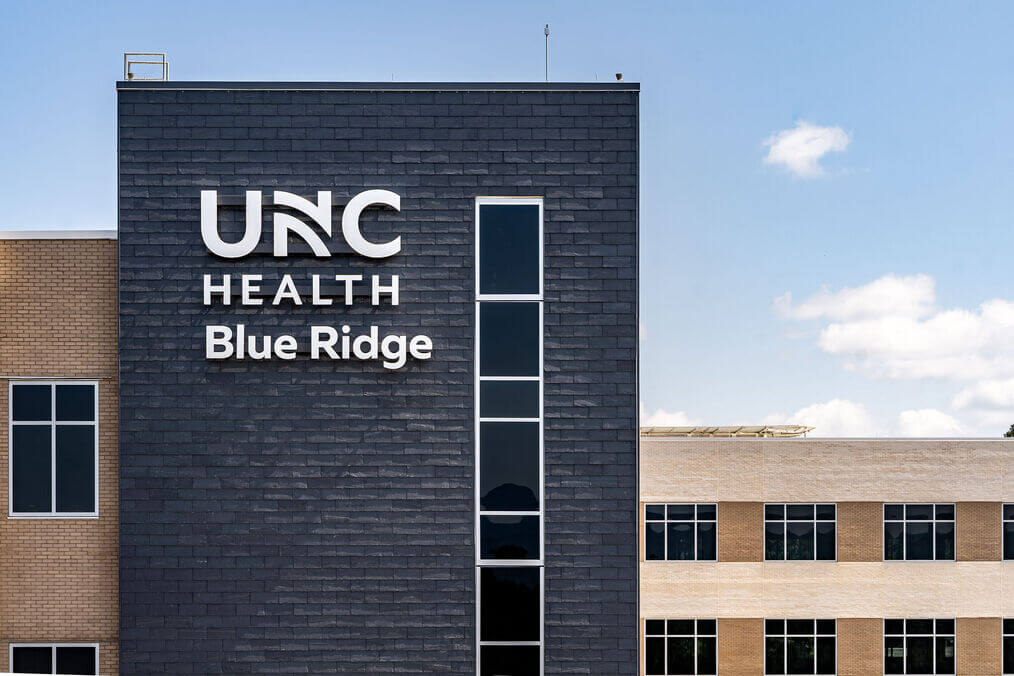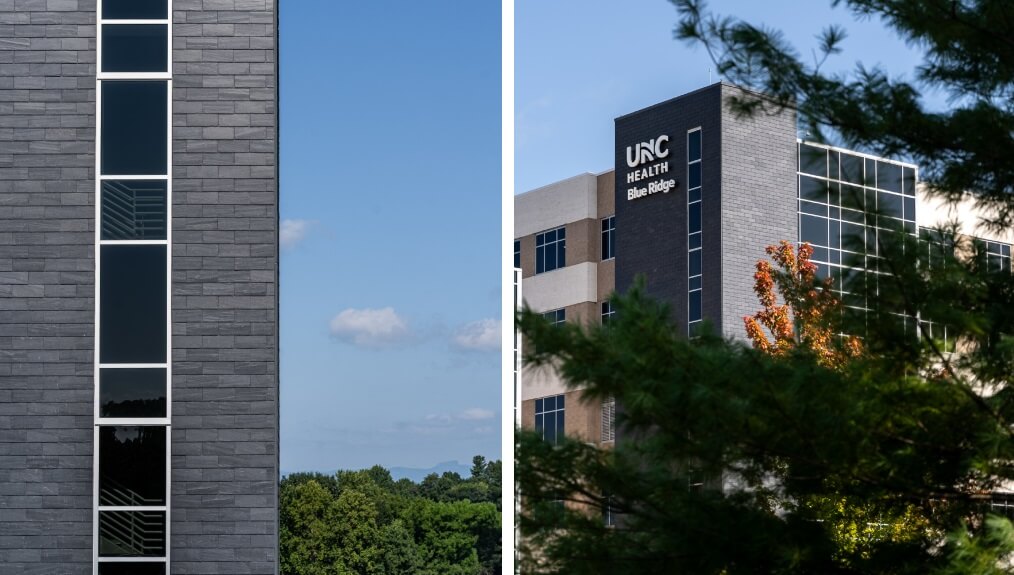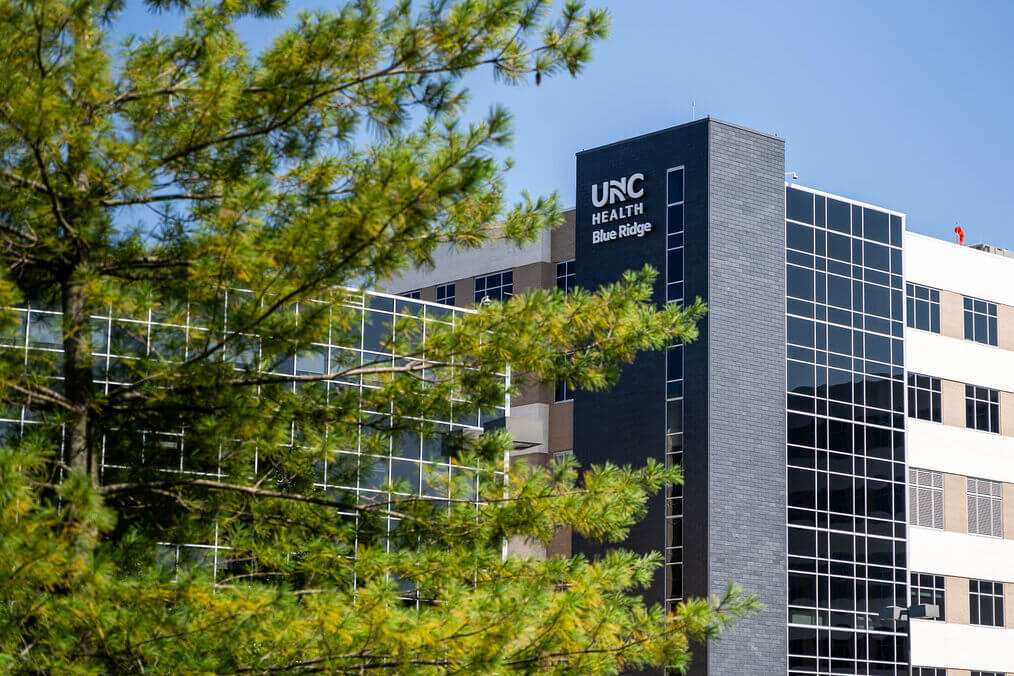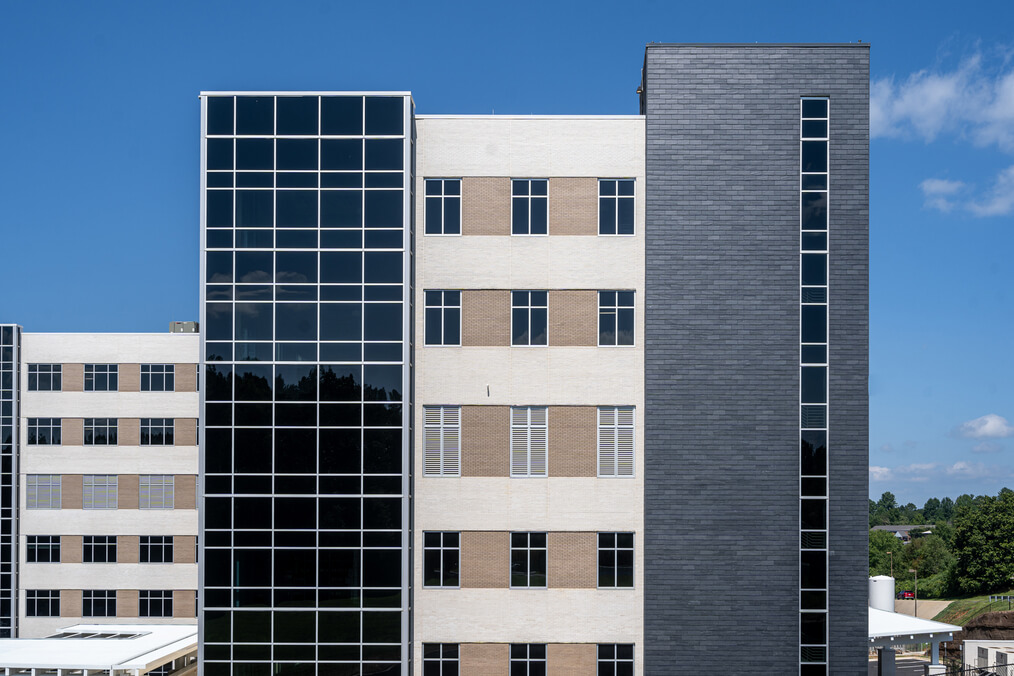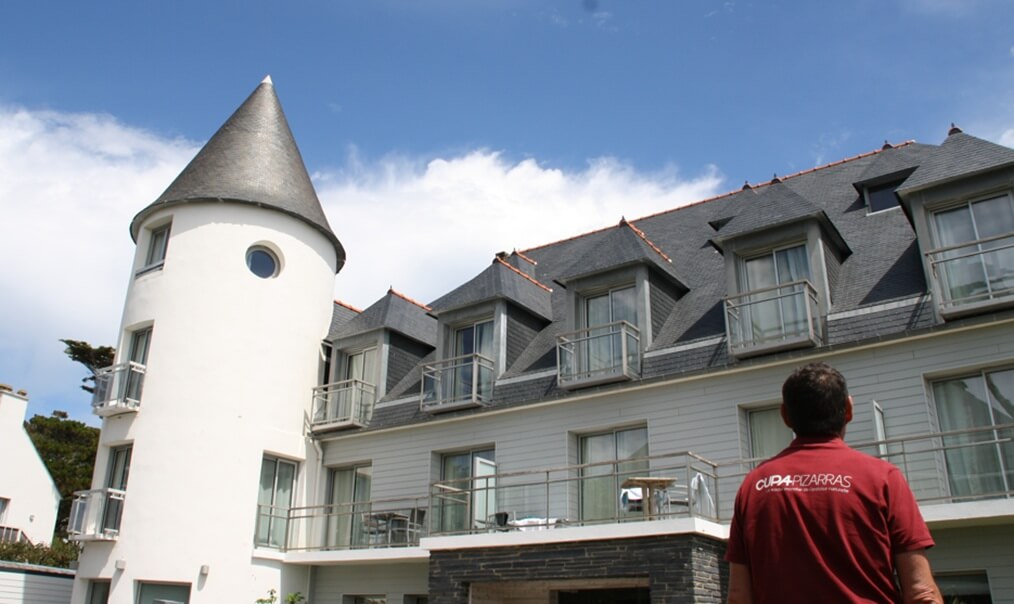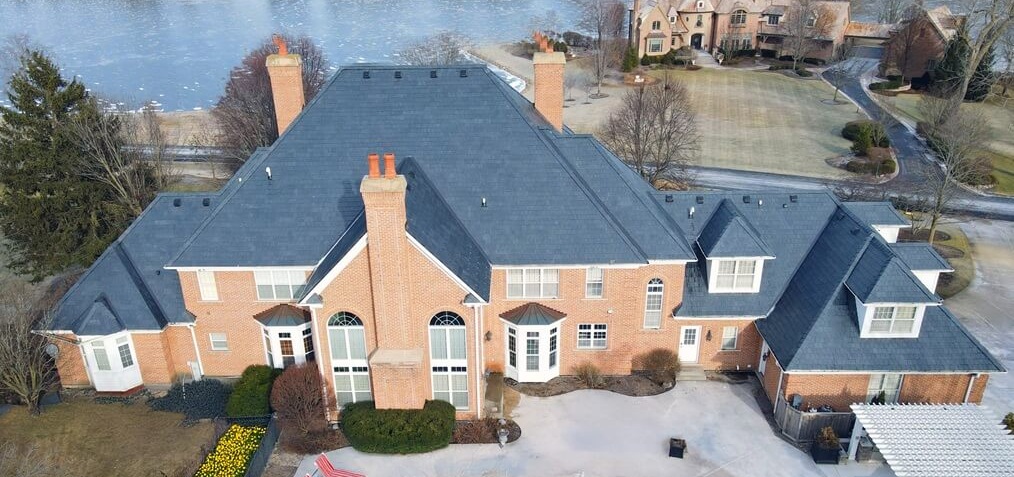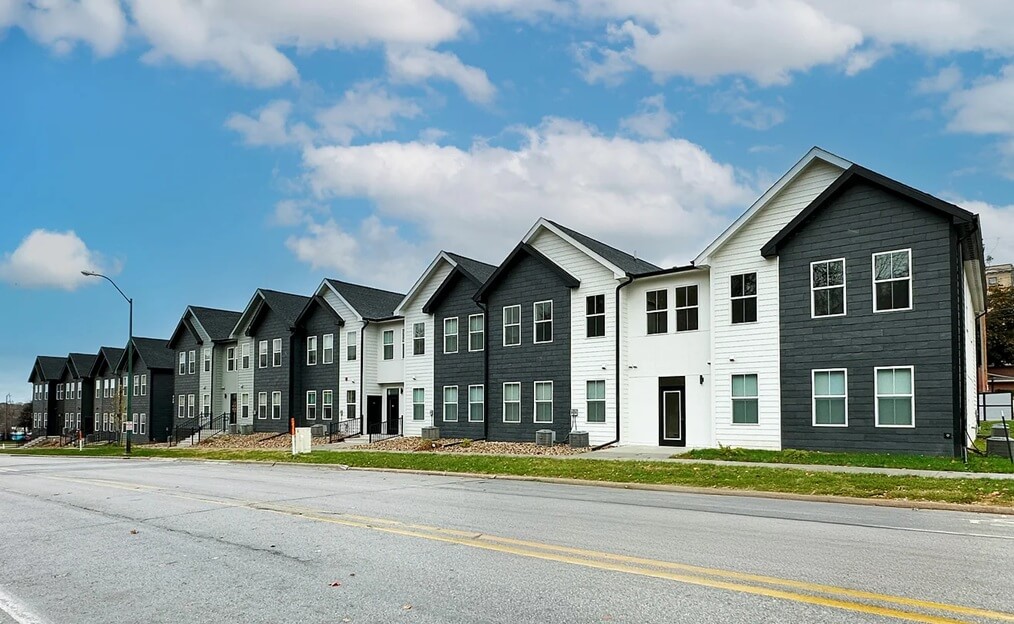CUPACLAD Builds Up Healthcare in Western North Carolina
UNC Health Blue Ridge, a comprehensive healthcare system in North Carolina’s rural Mountain Region, nearly doubled the size of its hospital by expanding its Morganton campus with a 220,560-square-foot tower addition. The $118 million project contains a new Emergency Department, critical care units, a rooftop helipad and three empty floors for future expansion.
Working with the DLR Group, a global integrated design firm and Brassfield & Gorrie, a design and construction company with offices across the Southeast, UNC Health Blue Ridge built the six-story tower as part of a larger construction project, including its award-winning new cancer center. The recent construction helps solidify UNC Health Blue Ridge’s position as UNC’s healthcare hub in western North Carolina.
Although a relatively small complex, UNC Health Blue Ridge’s hospital takes a prominent position just off I-40 in Morganton. Two towers serve as the focal point for people entering the parking area. The architects knew these towers needed an eye-catching exterior with a modern but classic look that would be virtually maintenance-free. They chose our CUPACLAD rainscreen cladding system for the project and approached Scott Hauser, cofounder of the SpecSouth Group, about finding an installer.
A 100% natural tectonic slate product mined from quarries in northern Spain, CUPACLAD began forming at least 500 million years before it emerged from the earth. As an architectural material, it can last about 100 years, almost without being touched. As Scott remarked:
CUPACLAD? You don’t get more sustainable than that.
Many installers have put slate on the roof, but only some have experience using slate as a rainscreen, essentially an assembly that will be drying out constantly. It’s pressurized behind the wall to maintain a constant airflow, vital in a healthcare environment to eliminate static air. Although Morganton rarely experiences extreme temperatures, mold is a genuine concern—especially at a hospital.
With CUPACLAD, Scott says:
There’s not going to be mold—or a lot of these things that you may have to deal with using other claddings. You’re getting a material that will withstand the weather.
What is a rainscreen cladding system, and why is it the best option for your façade?
Even in non-healthcare settings, walls are evolving; and the rainscreen, a longstanding tradition in European architecture, is becoming more prevalent in the United States. Users appreciate the sustainability and low maintenance of rainscreens, while architects enjoy their creative potential, and installers appreciate the ease of installation. Scott said:
CUPACLAD provides the full assembly, including the sub-framing, and that’s fairly unique. It prevents you from farming out a different system not tied to slate, so you’d have to reengineer, redevelop and understand another system to implement. So that’s nice for the installer.
Scott selected Pyramid Masonry to install CUPACLAD’s rainscreen. Since Pyramid’s primary work is in brick installation, which requires mortar rather than CUPACLAD’s screws and clips, Tim McManus, regional vice president of Pyramid Masonry, worked with Scott to figure out how to get the slate on the wall. The process proved very simple. “You’re talking about adjusting the clutch on a drill and screwing it to a batten that runs horizontally and holds each slate tile,” Scott said.
Without mortar, the whole project left a cleaner footprint, and CUPACLAD’s self-tapping screws made the entire installation much more straightforward than traditional masonry. Tim said:
Once you put the grid system in place, a semi-skilled laborer could get CUPACLAD on the wall. We completed one tower in about a month.
CUPACLAD’s consistent jet-black color and natural shine give the now-finished towers a classic yet modern look that exemplifies the hospital’s position as a regional healthcare center of excellence.

